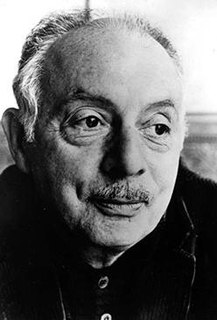A Quote by Stanley Kunitz
A poet needs to keep his wilderness alive inside him. To remain a poet after forty requires an awareness of your darkest Africa, that part of yourself that will never be tamed.
Related Quotes
The workplace needs the poet's gift. But the poet also needs to be educated about the workplace. You're not just coming in to do your art, you're actually making yourself vulnerable. You yourself are not God's gift to truth. You have to hazard yourself in their world, especially because you're inviting people to do the same. It's all about become visible, becoming incarnate, becoming here and now and yet with our eyes on a future horizon; holding the conversation you were meant to hold.
The poet is no tender slip of fairy stock, who requires peculiar institutions and edicts for his defense, but the toughest son ofearth and of Heaven, and by his greater strength and endurance his fainting companions will recognize the God in him. It is the worshipers of beauty, after all, who have done the real pioneer work of the world.
One of the appeals of William Carlos Williams to me is that he was many different kinds of poet. He tried out many different forms in his own way of, more or less, formlessness. He was also a poet who could be - he was a love poet, he was a poet of the natural order and he was also a political poet.
The poet or the revolutionary is there to articulate the necessity, but until the people themselves apprehend it, nothing can happen ... Perhaps it can't be done without the poet, but it certainly can't be done without the people. The poet and the people get on generally very badly, and yet they need each other. The poet knows it sooner than the people do. The people usually know it after the poet is dead; but that's all right. The point is to get your work done, and your work is to change the world.
When you fight, you don't fight for abstract values like the flag, or the nation, or democracy. You fight for your buddy. You fight to keep him alive, and he fights to keep you alive, and you go on that way, day after day, battle after battle. And when one of your buddies dies, something inside you dies as well. But you go on. You fight, so that his death isn't meaningless, his sacrifice isn't for nothing.
A poet is wounded into speech, and he examines these wounds, meticulously, to discover how to heal them. The bad poet harangues at the pain and yowls at the weapons that lacerate him; the great poet explores the inflamed lips of ruined flesh with ice-caked fingers, glittering and precise; but ultimately his poem is the echoing, dual voice reporting the damages.
One of the surest tests of the superiority or inferiority of a poet is the way in which a poet borrows. Immature poets imitate mature poets steal bad poets deface what they take and good poets make it into something better or at least something different. The good poet welds his theft into a whole of feeling which is unique utterly different than that from which it is torn the bad poet throws it into something which has no cohesion. A good poet will usually borrow from authors remote in time or alien in language or diverse in interest.





































